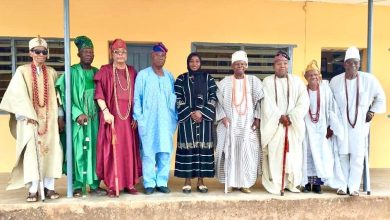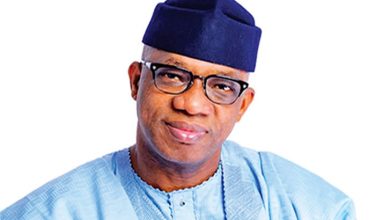
KWARA GOVERNMENT DEMOLISHES SARAKI’S ‘POLITICAL ACADEMY’
The Kwara State Government on Thursday embarked on the demolition of the late Senator Olusola Saraki’s home, popularly called Ile Arugbo, where political activities always take place in Ilorin, the State Capital.
Penpushing reports that, the government had earlier on Wednesday at about 2 a.m attempted to demolished the structure but was stopped by protesters, the security operatives dispersed protesters who kept vigil to prevent the demolition.
The Government officials, however, at about 4 a.m embarked on the demolition, while it is recalled that Governor AbdulRahman AbdulRazaq, last month, announced the decision to revoke the late Olusola Saraki’s property owing to alleged illegality in its acquisition.
Penpushing further reports that, AbdulRazaq said the land was originally designated for the construction of a secretariat and parking lot of the civil service clinic, but that it was unlawfully allocated to a private firm — Asa Investments Limited — without any record of payment to the state government.
The late Saraki’s son and former Senate President, Bukola Saraki, however, countered the statement, saying his late father lawfully acquired the land from the State Government and also accused the State Governor of being against the legacies of his father, adding that, “It is done in pursuit of selfish and devious objectives,”







